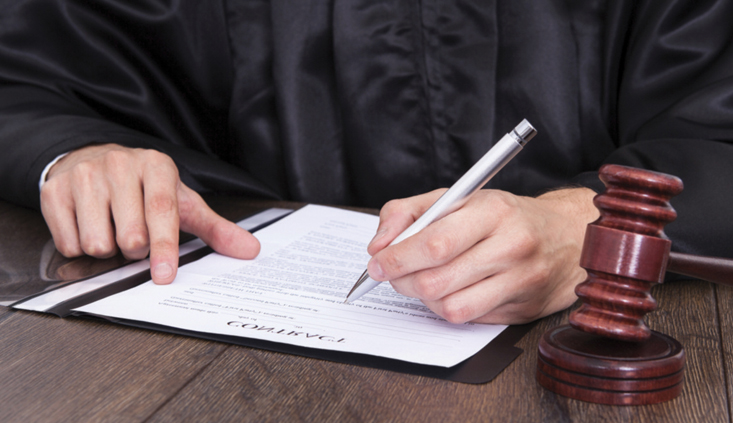Privileges and motions to compel
A review of the civil civil codes and court decisions that will help you get in discovery what you need to win
This article discusses the civil codes and court decisions on filing motions to compel and dealing with privilege objections.
A motion to compel can be filed against an opposing party for the failure to respond to discovery requests or if the response is insufficient. A party must respond to written discovery (Form Interrogatories, Special Interrogatories, Requests for Production, and Requests for Admissions) within 30 days of service (35 days if by mail). (Code Civ. Proc. §§ 2030.260(a), 2031.260, and 2033.250.)
If a party fails to respond to written discovery, the Code of Civil Procedure does not require the propounding party to meet-and-confer before filing a motion to compel. It is still recommended to meet-and-confer in writing, but it is not required. If a party completely fails to respond, a motion to compel may be brought at any time subject to the motion cut-off date which is 15 days before the initial trial date (Code Civ. Proc., § 2024.020.) An unverified response is the equivalent of a non-response. (Appleton v. Sup. Ct. (1988) 206 Cal.App.3d 632, 636.)
Discovery responses are often served after a motion to compel is already filed. In this scenario the moving party can simply take the motion off calendar. The moving party can move forward with discovery sanctions. The moving party can also have the Court order the responding party to provide responses without objection, assuming there are objections. Additionally, the Court could review the substance of the responses and order further responses. (Cal. Rules of Court, rule 3.1348; See also Sinaiko Healthcare Consulting, Inc. v. Pacific Healthcare Consultants (2007) 148 Cal.App.4th 390, 409.)
Motions to compel further responses to written discovery must be brought within 45 days (50 days if by mail) after service of the insufficient responses. (Code Civ. Proc., §§ 2030.300(c), 2031.310(c), and 2031.300.) Counsel is required to meet-and-confer before filing motions to compel further responses. (Code Civ. Proc., § 2023.010.) It is good practice to have multiple meet-and-confer attempts, both written and over the phone. A single attempt to meet-and-confer does not show very much professional courtesy, and will not generate much favor with the court.
Motions to compel discovery responses must comply with the deadlines of a regular noticed motion. The motion must be filed and served 16 court days before the hearing (add 5 days for mail or 2 days for FedEx). (Code Civ. Proc. § 1005, subd.(b), and Cal. Rules of Court, Rule 3.1300.) Oppositions to motions to compel must be filed no later than 9 days before the hearing. Replies must be filed no later than 5 days before the hearing. Service of oppositions and replies require receipt by the opposing party within 1 business day of the filing deadline. (Code Civ. Proc., § 1005(b).)
A motion to compel must contain: 1) a notice of motion; 2) points and authorities; 3) a separate statement; and 4) a declaration that set forth the good faith meet-and-confer attempts to resolve the matter informally. If sanctions are sought, the motion to compel must set forth the authority for sanctions and be accompanied by a declaration detailing the type and/or amount of the sanctions. (Code Civ. Proc., § 2024.040.) A separate statement is not required when no responses have been provided. (Cal. Rules of Court, rule 3.1345(b).)
Rule 3.1345(c) of the Rules of Court requires the separate statement to include “(1) the text of the request, interrogatory, question, or inspection demand; (2) the text of each response, answer, or objection, and any further responses or answers; (3) a statement of the factual and legal reasons for compelling further responses, answers, or production as to each matter in dispute; (4) if necessary, the text of all definitions, instructions, and other matters required to understand each discovery request and the responses to it; (5) if the response to a particular discovery request is dependent on the response given to another discovery request, or if the reasons a further response to a particular discovery request is deemed necessary are based on the response to some other discovery request, the other request and the response to it must be set forth; and (6) if the pleadings, other documents in the file, or other items of discovery are relevant to the motion, the party relying on them must summarize each relevant document.”
A motion to compel responses or documents at a deposition must be made no later than 60 days after completion of the record which is when the court reporter signs the transcript. (Code Civ. Proc.. § 2025.480(b).) The contents of the motion are the same as stated above. However, Code of Civil Procedure section 2025.480(h) requires the moving party to lodge with the court a certified copy of any relevant portions of the transcript.
Many courts will have local rules with additional requirements before a party is allowed to file a motion to compel. For example, the Los Angeles Superior Court requires the parties engage in an Informal Discovery Conference before filing a motion to compel. These local rules and requirements change often. It is good practice to review local rules before filing a motion to compel.
Privileges
Many times discovery responses are withheld due to a privilege. There are a host of privileges including: attorney/ client, litigation, work product (protection), tax returns, trade secrets, police personnel files, physician/patient, psychotherapist/patient, mediation communications, spousal, medical board procedures, privacy, hospital administration records, etc. Rarely do discovery responses identify or describe the item or items withheld due to a privilege. This leaves little opportunity to determine if there are any items being withheld, and whether an item is in fact protected from disclosure due to a privilege, or if the privilege was waived in some way.
Code of Civil Procedure section 2031.240(c)(1) requires that responses with objections based on privilege and work product protection “shall provide sufficient factual information for other parties to evaluate the merits of that claim, including, if necessary, a privilege log.” Privilege logs are not required to be served concurrently with objections, and may require a motion to compel. A privilege log must sufficiently specify each document being withheld so it can be determined whether or not it is in fact privileged. (Wellpoint Health Networks, Inc. v. Sup. Ct. (1997) 59 Cal.App.4th 110,130.) Once the identity and description of the withheld items are known, a determination whether to compel the items can be made.
Stay focused on the war, avoid kneejerk reactions
As lawyers we get angry when documents are not turned over even though we are entitled to them and we know they exist. Do not have a kneejerk reaction to file a motion to compel. Filing motions to compel to obtain seemingly unimportant discovery will not help win the war. You must consider whether you would rather have the document/video/statement/incident report, or argue that the defendant and its team of high-priced lawyers are trying to cover up the truth. Vilifying the defendant for “covering up” the truth is often times more effective at trial than having all the evidence before the jury.
For example, incident reports in premises-liability cases are routinely withheld by the defense. Lawyers argue back and forth about whether incident reports are discoverable. Set that issue aside and consider the big picture: do I even want the incident report? Only in rare circumstance will an incident report contain such beneficial information that obtaining it would be more powerful at trial than vilifying the defendant for covering up the truth.
Consider whether you would rather have some type of document or have testimony from the defendant’s Person Most Knowledgeable that confirms: 1) some important document exists; 2) that it contains the truth about what happened; 3) that it was made before any lawyers or corporate were involved; and 4) they along with their lawyers are refusing to produce it.
Bill Karns

Bill Karns is a partner at Karns & Karns. He focuses on major personal injury cases. He is on the Board of Governors of the Consumer Attorneys Association of Los Angeles (CAALA) and Consumer Attorneys of California (CAOC). In 2014, he was selected as a SuperLawyer. He also received the CAALA Presidential Award of Merit and the New Lawyers Division Chair Award of Merit in 2012 from CAOC.
Copyright ©
2025
by the author.
For reprint permission, contact the publisher: Advocate Magazine

